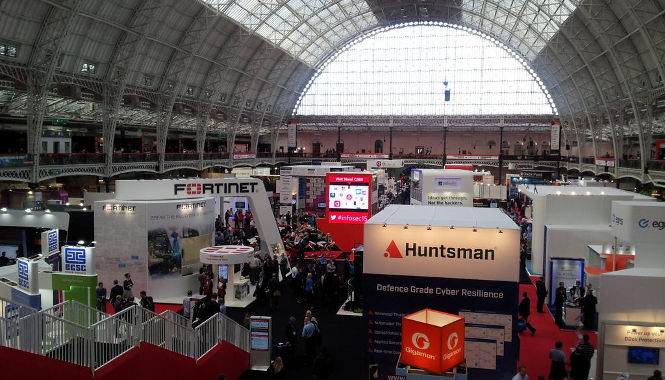
Infosecurity Europe is the biggest conference of its kind on the continent, drawing in people from across the globe to flog their wares and talk cybersecurity in London.
Last week CBR hit the show floor to chat to some of the leading experts in the industry, including executives from the likes of Intel and Sophos and law enforcers trying to adapt to a changing criminal world.
Here is what we learnt:
1. GCHQ is agnostic on the Snooper’s Charter
You would have thought that a cyber-spy would be interested in the Snooper’s Charter, known officially as the Investigatory Powers Bill and previously dubbed the Communications Data Bill.
Having been blocked under the coalition government, the bill was resuscitated by the home secretary Theresa May after the general election. Under the terms telecoms companies will be obliged to provide government’s with phone metadata, and social networks will have to decrypt messages on request.
Despite the seismic shift in how policing could work under the bill Ciaran Martin, director general of cybersecurity at GCHQ, declined to comment on it Infosecurity Europe. He did however claim: "We don’t have enough people to engage in unlawful mass intrusion."
2. The NCA is investigating the entire crime chain
Much cybersecurity comment is focused on how malware is developed and how it is implanted within an organisation, which often involves dissecting the source code of a misleading email attachment.
This in mind the National Crime Agency’s (NCA) head of cybercrime Andy Archibald sought to draw attention to piracy as a "gateway crime" – which raised a few eyebrows in the press gallery.
In clarifying remarks an NCA spokesman added that the agency was concerned that young people were researching cybercrime out of benign curiosity and later being drawn into using the tools for criminal purposes.
"Not only are we interested in those engineering and developing the code and the program, we’re interested in the bulletproof hosts and we’re interested in those money mules who launder the money," Archibald said.
3. Sony hack had less impact than you would think
Last year’s attack on Sony Pictures Entertainment, the film division of the conglomerate, has been regarded as among the most damaging in cybersecurity history, embarrassing the company and costing millions to fix.
Since then many have viewed the attack as a game-changing event in cybersecurity, making the issue even harder to ignore than after the attack on the US grocer Target in 2013, which was similarly devastating.
Despite this a panel of CISOs at Infosecurity Europe were ambivalent about how it had changed their thinking. Vicki Gavin, compliance director at The Economist Group, said: "It hasn’t changed how we do risk modelling.
"At the end of the day the Sony hack was like any other hacktivist attack," she added, referring to attacks motivated by grudges or, more commonly, politics. "They took some Sony information and displayed it earlier than Sony would have liked."
4. The UK is due a major cybersecurity IPO
Initial public offerings for billion dollar companies are traditionally the domain of New York, which provides the counterpoint to Silicon Valley’s thriving market for venture capital funding in the form of the Nasdaq and New York stock exchanges.
That in mind it was surprising to find that Sophos, an Abingdon-based security vendor, is planning on listing on the main market of the London Stock Exchange later this year, in a £100m funding round that could leave it valued at £1bn.
It comes just as the company is aggregating the two halves of its business: endpoints and networking. James Vyvyan, vice president of UKI at Sophos, told CBR that the so-called Galileo project will launch next month, partly in a bid to target the behavioural analytics market.
"A lot of the time it’s impossible to see malicious incidents in the system until it does something, and by the time it does something it’s too late," he said.
5. As few as 100 are behind global crime wave
Moreso than the trafficking of drugs, counterfeit goods and people, cybercrime is an international problem that is befuddling domestic police forces.
Attacks launched from Russia and Eastern Europe have the power to spread across the entire world, with the criminals working in the knowledge that foreign policemen will have a hard time tracking them down, let alone extraditing them.
"It’s so distributed that the only way you can fight against it is this international co-operation," said Alan Woodward, a professor at the University of Surrey, to murmurs of assent from the FBI, NCA and Europol representatives sitting alongside him.
But intriguingly he added that such a crime wave might be backed by few people. "There’s relatively few, maybe a hundred people, that are enablers of this organised cybercrime," he added.






